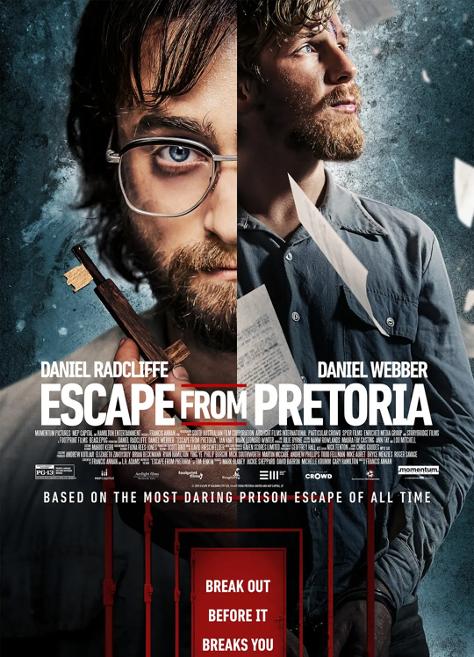On March 6, 2020, the film "Escape from Pretoria" starring "Harry Potter" Daniel Radcliffe was released in the United Kingdom, and currently has a Douban rating of 7.6 and an IMDB website rating of 6.6.

The film is based on a true story, set in South Africa in 1978, when apartheid was in place. The two protagonists, Tim Jenkin and Stephen Lee, members of the anti-apartheid party African People's Congress, were imprisoned for covert involvement in the anti-apartheid movement, and were sentenced to 12 and 8 years in prison, respectively. The film mainly tells the story of their collaborative planning of the prison escape and the final escape.
The film gives the protagonist little space to participate in the anti-apartheid movement, and the opening chapter is very long, and it plays out that the judge sentences the two to prison. Most of the time, it is about the protagonists in prison, how to use the only materials and conditions to make keys, how to deceive the surveillance of prison guards, and how to successfully escape.
In the first half of the story, the film has little ink to depict the personality, political stance, and motivation of the protagonist, and the audience cannot understand the characters in depth. This also makes the audience not have much empathy after watching the protagonist successfully escape from prison, and cannot produce a strong emotional resonance.
The director and lead writer of Escape from Pretoria is the black director Francis Annan, who was the first feature film he directed. It is worth mentioning that the two real owners who participated in the movement that year also participated in the script development and performance of "Escape from Pretoria". However, the story structure of this film greatly wastes the historical material of real people and real events, giving people the feeling of a movie version of "Prison Break", a film that purely tells about prison breaks.
Looking at the script development and staff of "Escape from Pretoria", the producers should be rushing to make a low-end version of "The Shawshank Redemption", or the South African version of "Escape from Tehran".
Unfortunately, "Escape from Pretoria" did not shoot the feeling of suffocation and helplessness of people under the high walls like "The Shawshank Redemption", nor did it depict the difficulties and crises encountered by the protagonists in detail like "Escape from Tehran", and the storyline was thin and could not withstand scrutiny or be memorable. Director Francis Annan should review and summarize his film debut.